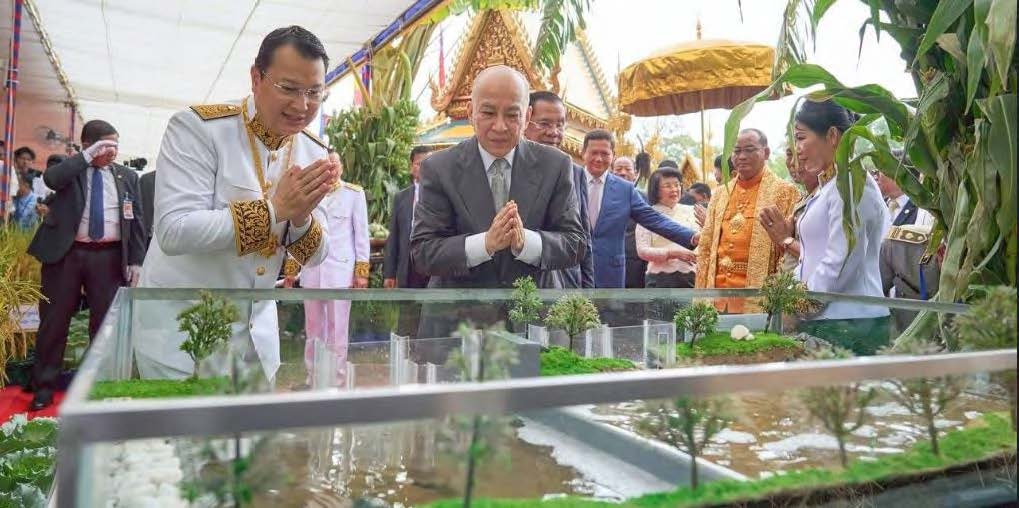The Gulbali Institute-led FishTech Cambodia project was presented to the King, the Prime Minister and other senior officials during the National Ploughing Ceremony in Cambodia.

A fisheries sustainability initiative led by the Gulbali Institute has captured national attention in Cambodia.
During the National Ploughing Ceremony in June, the FishTech Cambodia project was presented to His Majesty King Norodom Sihamoni, Prime Minister HE Hun Manet, Minister for Agriculture, Forestry and Fisheries HE Dith Tina and other senior officials.
To communicate the science of fish migration and fishway technology, the Cambodian team developed a working model fish ladder using model railway components. This engaging educational tool enabled non-technical audiences, including government leaders, to gain a deeper understanding of the importance of sustainable fish passage.
FishTech Cambodia is part of a broader initiative titled FishTech: Integrating Technical Fisheries Solutions Into River Development Programs Across South-East Asia. The program is funded by the Australian Centre for International Agricultural Research (ACIAR).
The FishTech project supports regional food security, biodiversity conservation and sustainable livelihoods by promoting the design and adoption of fish-friendly infrastructure. It addresses both the technical challenges and institutional barriers to implementation, while fostering strong local partnerships, building capacity and influencing policy at both national and regional levels.
The project focuses on strengthening the capacity to conserve fisheries while securing long-term economic and environmental benefits.
Research problem
In South-East Asia, the rapid development of irrigation and hydropower infrastructure is severely impacting freshwater fish populations by blocking critical migration pathways. These migrations are essential for breeding, feeding and sustaining local fish stocks. At the same time, rice production – equally vital for regional food security – depends on flood control systems that unintentionally obstruct fish movement. There is an urgent need to reconcile these competing demands on river systems through sustainable, integrated solutions.
Location
Cambodia, Indonesia, Lao People’s Democratic Republic (Lao PDR) Thailand
Collaborators
Key outcomes
Beneficiaries